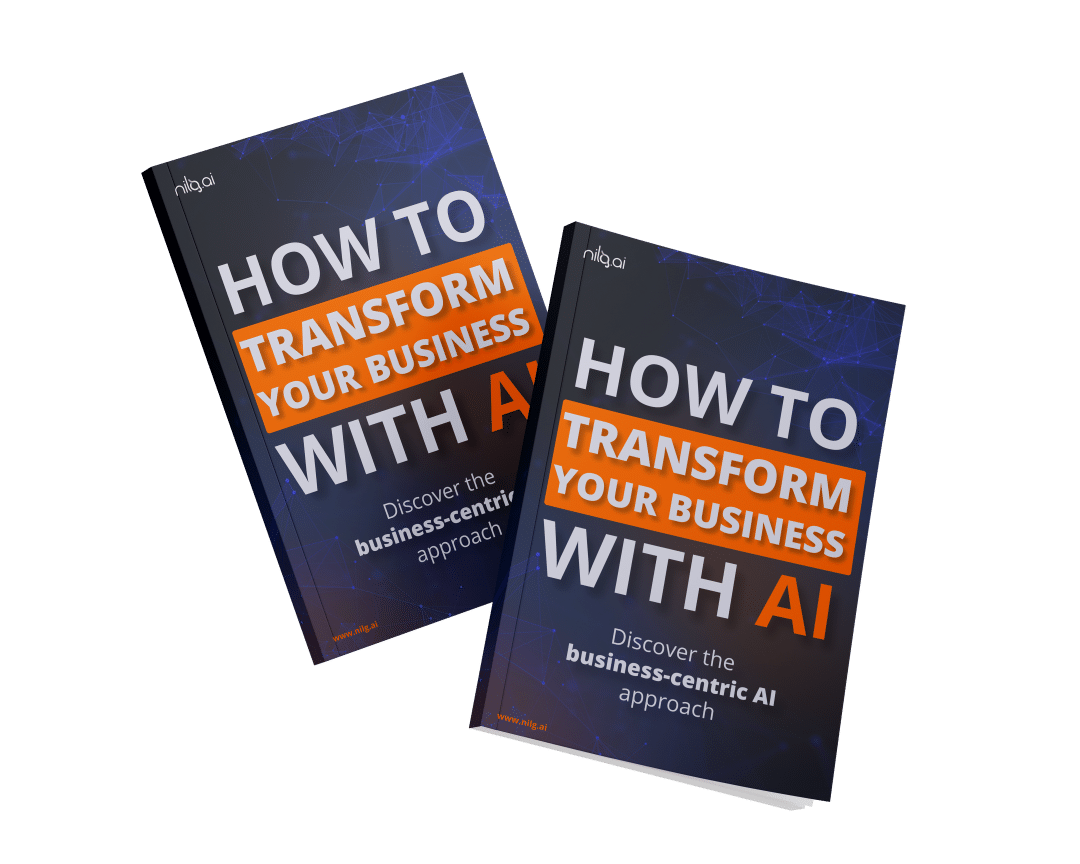Digital business transformation examples: 10 Real-World Case Studies
Feb 10, 2026 in Listicle: Examples
Discover digital business transformation examples and how AI, data, and strategy fuel growth with practical, actionable insights.
Not a member? Sign up now
Business, Model, and Data centric AI
Kelwin on Feb 10, 2024

In this article, we’ll explore the benefits of employing a business-centric AI strategy and compare it to other approaches like model-centric AI and data-centric AI.
Business-centric AI should be the industry standard when embracing AI in any company. Think of it like starting a new department that needs the right information to perform well and, in return, deliver impactful outputs.
This method is about fitting AI into your business pipeline, business processes, and company culture. This approach involves asking key questions such as, ‘How can AI help me fulfill my mission?’ or ‘Can I adjust how I make a certain decision based on the new opportunities AI provides?’
By embracing this approach, your entire organization shifts towards a mindset where AI is not just an add-on but a driving force for continuous improvement and innovation across all business facets.

Download our eBook and discover the most common pitfalls when implementing AI projects and how to prevent them.
Send me the eBookModel-centric AI is a common approach in academia and machine learning courses, with a strong focus on the modeling component. This approach assumes that the data is already prepared and doesn’t require much change. The central part is creating and fine-tuning the AI model.
You can identify someone with a model-centric perspective when they ask questions like, “Is this a classification model?” or “Should I use a neural network or a decision tree?“
Data-centric AI focuses on improving the quality of the data used by AI models. When trying to fix or improve a predictive problem, the focus isn’t on having a better model but a better dataset to feed the model.
This means ensuring the data is accurate, clean, and comprehensive, possibly by adding more detailed data or looking at different data sources. The increase in performance you can gain from having better data outweighs the marginal increase you can get from changing the model.
Opting for business-centric AI over model-centric or data-centric approaches offers a more holistic integration of AI into your company’s fabric. This approach ensures that AI becomes a key driver of business goals, whether enhancing customer experience, boosting efficiency, or fostering innovation.
Business-centric AI delivers more sustainable and impactful results, making it a comprehensive choice for companies looking to fully leverage AI capabilities.
In conclusion, while model-centric and data-centric AI have their place, the business-centric approach will revolutionize your company’s AI integration. Remember, the future of AI is business-centric. Embrace this strategy and unlock AI’s full potential in your company’s growth.
For a more in-depth exploration of how to harness the transformative power of AI in your business, check out our e-book, “How to Transform your Business with AI.” This comprehensive guide provides practical insights to help you navigate and implement AI effectively. Download your copy today for free and begin your journey towards a smarter, AI-driven future for your business.
Like this story?
Special offers, latest news and quality content in your inbox.
Feb 10, 2026 in Listicle: Examples
Discover digital business transformation examples and how AI, data, and strategy fuel growth with practical, actionable insights.
Feb 6, 2026 in Resources
Discover the 12 best AI tools for small business success. Our guide covers strategic insights, pros & cons, and how to choose the right AI partner.
Feb 3, 2026 in Guide: How-to
Master customer retention rate calculation with this practical guide. Learn the formulas, see real-world examples, and get actionable tips for business growth.
| Cookie | Duration | Description |
|---|---|---|
| cookielawinfo-checkbox-analytics | 11 months | This cookie is set by GDPR Cookie Consent plugin. The cookie is used to store the user consent for the cookies in the category "Analytics". |
| cookielawinfo-checkbox-functional | 11 months | The cookie is set by GDPR cookie consent to record the user consent for the cookies in the category "Functional". |
| cookielawinfo-checkbox-necessary | 11 months | This cookie is set by GDPR Cookie Consent plugin. The cookies is used to store the user consent for the cookies in the category "Necessary". |
| cookielawinfo-checkbox-others | 11 months | This cookie is set by GDPR Cookie Consent plugin. The cookie is used to store the user consent for the cookies in the category "Other. |
| cookielawinfo-checkbox-performance | 11 months | This cookie is set by GDPR Cookie Consent plugin. The cookie is used to store the user consent for the cookies in the category "Performance". |
| viewed_cookie_policy | 11 months | The cookie is set by the GDPR Cookie Consent plugin and is used to store whether or not user has consented to the use of cookies. It does not store any personal data. |